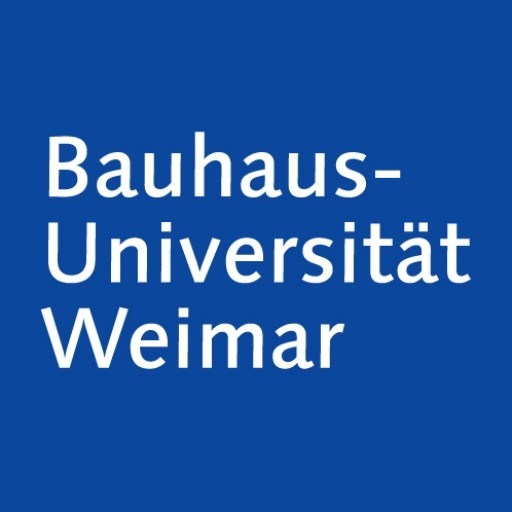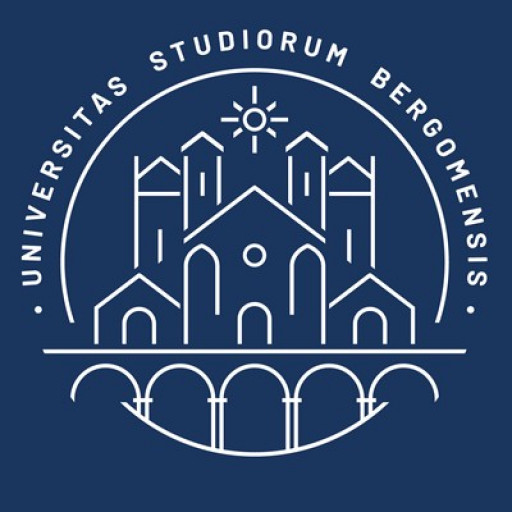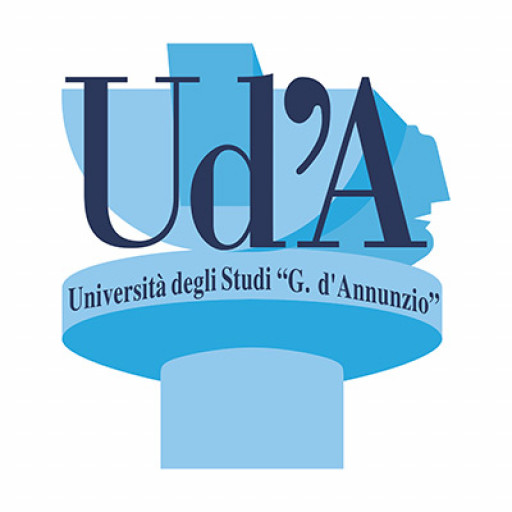Photos of university / #bauhaus_uni
(1) The Master's degree programme "Natural Hazards and Risks in Structural Engineering" is an intensive and application-based, advanced course of study. The programme is intensively supervised and research-oriented. It provides students with a solid technical basis in the key areas of structural engineering through a coherent and coordinated programme, integrating research and practical applications.
(2) The degree programme enables students to acquire excellence in oral and written skills. By providing students with advanced scientific and interdisciplinary knowledge, they are able to take on demanding engineering tasks in the areas of planning, construction and realisation of structures under specific conditions. They are also able to carry out site- or structure-specific risk analysis using modern tools to estimate the threat of natural hazards.
In addition to strengthening their theoretical and scientific competence, students develop skills in modelling, simulation and application of performance-based design, fieldwork and laboratory investigations.
In order to structure and reflect the complexity of the chain reactions inherent to natural hazards, this programme explores in detail various engineering disciplines and engineering-related areas of the natural sciences, social sciences and economics. It examines the central role that structural engineering plays in reducing the impact of natural disasters. Furthermore, it focuses on the engineering methods that are used to assess and reduce the vulnerability of structures.
The programme highlights the demands on engineering technology at both regional and global level by using international projects as models. The elective compulsory modules expand on specific lines of development; they equip and prepare students systematically for future professional careers or further research positions.
(2) The degree programme enables students to acquire excellence in oral and written skills. By providing students with advanced scientific and interdisciplinary knowledge, they are able to take on demanding engineering tasks in the areas of planning, construction and realisation of structures under specific conditions. They are also able to carry out site- or structure-specific risk analysis using modern tools to estimate the threat of natural hazards.
In addition to strengthening their theoretical and scientific competence, students develop skills in modelling, simulation and application of performance-based design, fieldwork and laboratory investigations.
In order to structure and reflect the complexity of the chain reactions inherent to natural hazards, this programme explores in detail various engineering disciplines and engineering-related areas of the natural sciences, social sciences and economics. It examines the central role that structural engineering plays in reducing the impact of natural disasters. Furthermore, it focuses on the engineering methods that are used to assess and reduce the vulnerability of structures.
The programme highlights the demands on engineering technology at both regional and global level by using international projects as models. The elective compulsory modules expand on specific lines of development; they equip and prepare students systematically for future professional careers or further research positions.
Educational organisation
The curriculum (four semesters) consists of a total of 59 compulsory hours (66 credits), 15 optional required hours (18 credits) and at least 10 elective hours (12 credits). Students must select and successfully complete a project as one of their optional required modules, and their Master's thesis (four months or 24 credits). Upon request, students may be permitted to participate in this degree programme on a part-time basis.Forms of assessment
During the semester, academic progress is assessed on the basis of homework assignments, semester papers and project work. At the end of each semester, academic progress is evaluated through examinations.Course objectives
The increasing occurrences of natural hazards all over the world, as well as their various effects on individuals, societies and modern economies, is one of the major challenges for decades to come. The Master's course in Natural Hazards and Risks in Structural Engineering confronts this challenge by providing indispensable tools for dealing with these phenomena in various civil engineering design processes. The Master's course combines practical structural engineering with state-of-the-art concepts in the fields of computational mechanics, dynamics and probability theory/stochastic analysis. The Master's course thus provides key qualifications for innovative work in the field of earthquake, flood and wind engineering, as well as offering an international context in which students can achieve both technical success and personal advancement.Language requirements
Candidates must provide proof of English language proficiency equivalent to level C1 (European Framework) by submitting either:1. Proof of English proficiency as a native speaker (certificate of higher education entrance qualification or first-level professional qualification [i.e. undergraduate degree] from an English-speaking country), or
2. Proof of English proficiency at level C1 based on the Common European Framework of Reference for Languages, certified by one of the following internationally recognised certificates:
- TOEFL (Internet: 79, computer: 213, paper: 550)
- Cambridge Certificate in Advanced English, Grade C
- IELTS, band 6.0
Academic requirements
The minimum qualification for admission to this programme is either a Bachelor of Science degree in civil engineering or an equivalent professional qualification with a final grade of minimum 2.5 (according to the German system). The Examination Committee must ensure that the candidate's prior degree is equivalent to that of the BSc programme in civil engineering. If not, the Examination Committee may admit students under conditions which the candidates must fulfil at a later point. In such cases, candidates are not legally entitled to gain admission to the programme.Enrolment fees
Approx. 160 EUR per semester. This is a contribution to student services and the student council. It further includes free regional transport, student discounts for meals at the university cafeteria, and theatre and museum tickets as well as many other activities. The additional fee for the student ID ("Thoska") is 20 EUR (one-time only fee).Costs of living
In Weimar, living expenses tend to be lower than in larger German cities. We recommend that students budget at least 700 EUR per month.Job opportunities
The graduate programme of the Faculty of Civil Engineering offers up to three positions for graduate assistants per academic year, awarded to international students of the NHRE Master's programme. The workload is an estimated twelve hours per week, adding up to a remuneration of about 400 EUR per month.Contracts are initially drawn up for one year but can be extended for the duration of the second year if so agreed by both parties.
As well as providing opportunities for academic assistantships, student services and the student council assist students in finding jobs. We still recommend that students plan their finances well ahead and not rely on additional earnings.
Funding opportunities within the university
- University Scholarship Programme for International Students
- Scholarship Programme of the Association for Sponsorship of Students of Bauhaus-Universität Weimar
http://www.uni-weimar.de/en/university/international/to-weimar/scholarships/
Arrival support
International Officeinternational-office@uni-weimar.de
Phone 1: +49 (0) 36 43-58 23 63
Phone 2: +49 (0) 36 43-58 23 73
Fax: +49 (0) 36 43-58 23 75
http://www.uni-weimar.de/international
Address for visitors:
Campus.Office
Geschwister-Scholl-Straße 15
99423 Weimar
Germany
Weimar International Network (WIN)
Information, services, and buddy programme for international students prior to arrival
http://www.uni-weimar.de/projekte/win/
Services and support for international students
Academic support and counselling office: Faculty of Civil Engineering, Mrs Birgit Bodebirgit.bode@uni-weimar.de
Phone: +49 (0) 36 43-58 45 68
Fax: +49 (0) 36 43-58 45 65
International Office
international-office@uni-weimar.de
Phone 1: +49 (0) 36 43-58 23 63
Phone 2: +49 (0) 36 43-58 23 73
Fax: +49 (0) 36 43-58 23 75
http://www.uni-weimar.de/international
Address for visitors:
Campus.Office
Geschwister-Scholl-Straße 15
99423 Weimar
Germany
Weimar International Network (WIN)
http://www.uni-weimar.de/win
WIN is an online platform of services for international students in Weimar. It offers useful information and events, fosters contact between international and German students, and provides orientation for newcomers to Bauhaus-Universität Weimar.
WIN offers helpful advice, links, and contact information. You can also register to participate in cultural exchange programmes and subscribe to the monthly newsletter "curious@bout Weimar." The calendar contains information about upcoming international events in Weimar and the surrounding region.
WIN is a project of the International Office of Bauhaus-Universität Weimar, coordinated in cooperation with student services Thüringen and the student initiative Bauhaus Internationals.
Accommodation
The "Studentenwerk Thüringen" (student services Thuringia) administers approx. 1,100 apartments in Weimar. Monthly rates vary from 105-280 EUR. The university itself does not provide accommodation.E-mail: wef@stw-thueringen.de
Phone: +49 (0)3 61-7 37 18 21
Visiting address: Weimar, Marienstraße 15 a
Website: http://www.stw-thueringen.de
Application: https://tl1host.de/SWJ/?lang_id=2
Typically, up to five students share living quarters. Students have their own bedrooms and share a kitchen and a bathroom. Most rooms are furnished (bed, desk, chair, cupboard, shelf), but kitchenware and appliances are not included. Mentors for international students provide assistance in settling in during the first couple of days and also organise events.
Students advertise private and shared flats on the university website ("Pinnwand"): http://www.uni-weimar.de.










